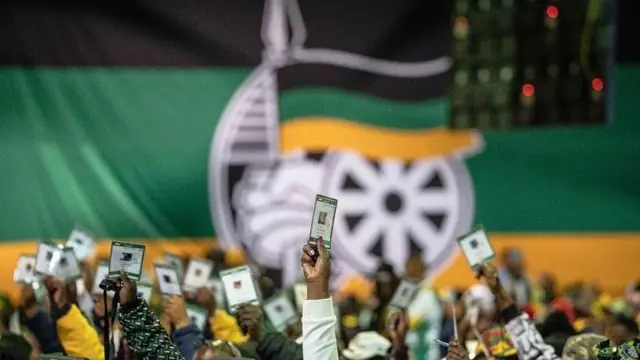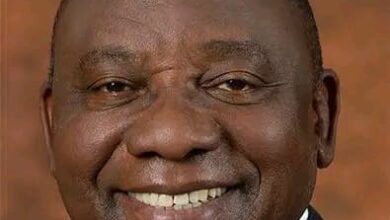The upcoming African National Congress (ANC) gathering aims to prioritize strategies for economic revival and growth.

The upcoming African National Congress (ANC) gathering aims to prioritize strategies for economic revival and growth. As the nation grapples with the aftermath of various challenges, the party leadership is poised to chart a course towards economic rejuvenation, placing it at the forefront of their discussions and decisions. This gathering presents a pivotal opportunity to devise practical solutions and policies that will steer the country towards a more prosperous future.
The upcoming African National Congress (ANC) lekgotla, a high-level consultative meeting, is poised to place the critical issue of economic recovery at the forefront of its agenda. With the country’s economy still grappling with the lingering effects of the COVID-19 pandemic, the governing party is expected to prioritize strategies and actions aimed at engineering a robust and sustainable economic rebound.
The lekgotla, which typically brings together the ANC’s top leadership, including the national executive committee, provincial chairpersons, and alliance partners, will provide a crucial platform for in-depth discussions and deliberations on the state of the economy. Delegates will undoubtedly explore a range of measures and interventions designed to address the multifaceted challenges facing South Africa’s economic landscape.
Key areas of focus are likely to include stimulating growth, creating employment opportunities, supporting small and medium-sized enterprises, and addressing persisting structural inequalities. The party’s economic transformation agenda, which has been a central pillar of its policy framework, will undoubtedly feature prominently in the discussions.
Moreover, the lekgotla is expected to delve into the role of the government, the private sector, and social partners in collaborating to drive economic recovery. Participants will likely explore innovative approaches to revitalizing key industries, attracting investment, and fostering an enabling environment for businesses to thrive.
Given the gravity of the economic situation and the pressure on the ANC to deliver tangible results, the outcomes of this lekgotla will be closely watched by both domestic and international observers. The party’s ability to formulate and implement effective recovery strategies will be crucial in determining the trajectory of South Africa’s economic future.
SA’s sluggish economic performance over the past ten years has become a major point of concern for the ruling African National Congress (ANC) party. The party has attributed its significant electoral setbacks in recent years to this anaemic economic trajectory, and it is now poised to address this issue at a crucial three-day strategic planning session.
The country’s economic growth has been stagnant, with GDP expansion struggling to keep pace with the country’s population growth. This has led to stagnant incomes, high unemployment, and a widening of income inequality, all of which have contributed to widespread public discontent with the government’s handling of the economy.
The ANC, which has been the dominant political force in South Africa since the end of apartheid, is now facing significant pressure to revive the economy and deliver tangible improvements in the lives of its citizens. The upcoming strategy meeting is seen as a critical opportunity for the party to chart a new course and unveil a comprehensive economic plan that can address the country’s pressing challenges.
Observers will be closely watching the deliberations and any policy announcements that emerge from the meeting, as they could have far-reaching implications for South Africa’s economic trajectory and the political fortunes of the ruling party. The stakes are high, and the ANC leadership is under immense pressure to find solutions that can restore public confidence and reignite economic growth.
Here is an elaborated and expanded version of the original passage:
The top leadership of the political party, including its senior executives, state-level chief ministers or premiers, and municipal-level mayors, convened a high-level meeting to assess the party’s recent decline in electoral fortunes. The closed-door gathering brought together the party’s most influential figures to analyze the factors contributing to their underperformance in recent elections and devise strategies to regain voter confidence and support.
The party’s top brass, composed of its national-level president, general secretary, and other senior office-bearers, led the discussions, expressing deep concern over the erosion of the party’s traditional vote bank and its inability to connect with emerging demographic groups. The state-level premiers, who oversee the party’s governance in their respective regions, provided insights into the local-level challenges they faced, ranging from anti-incumbency sentiments to the rise of regional rivals.
The mayors, who represent the party’s leadership at the municipal level, shared their experiences of navigating urban voter preferences and the unique socio-economic concerns of city dwellers. Together, the assembled leaders engaged in a comprehensive review of the party’s election manifestos, campaign strategies, and outreach initiatives, identifying areas that required immediate attention and revamp.
The meeting was marked by frank and open discussions, with the participants acknowledging the need for a thorough introspection and a willingness to embrace bold, innovative approaches to address the party’s declining electoral fortunes. As the deliberations progressed, a consensus emerged on the imperative to reconnect with the grassroots, strengthen the party’s organizational structure, and develop a more responsive and inclusive policy agenda that resonates with the evolving aspirations of the electorate.
Participants left the meeting with a renewed sense of determination, vowing to work collaboratively to chart a path forward and regain the party’s position as a formidable political force. The outcomes of this high-level conclave were expected to shape the party’s strategic priorities and set the stage for a comprehensive overhaul of its electoral preparedness in the run-up to the next round of elections.




